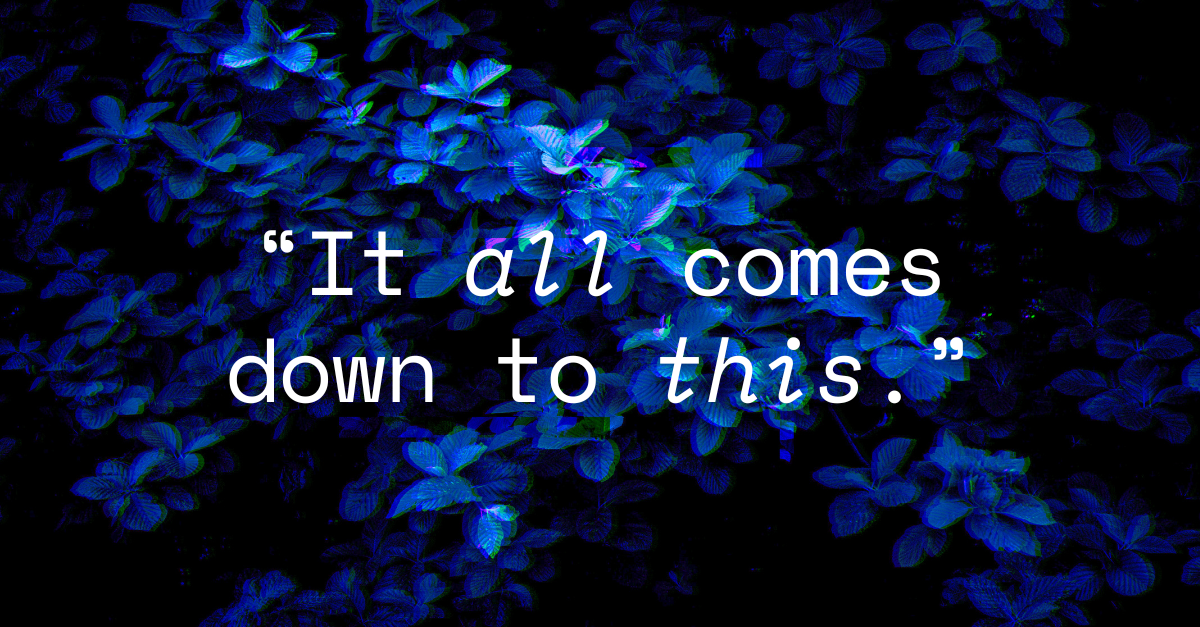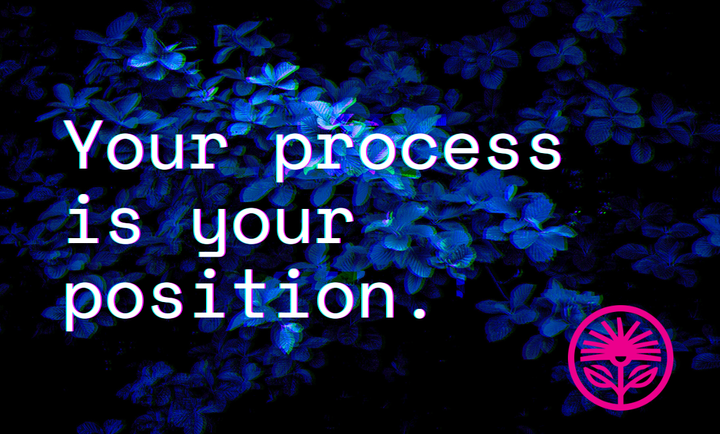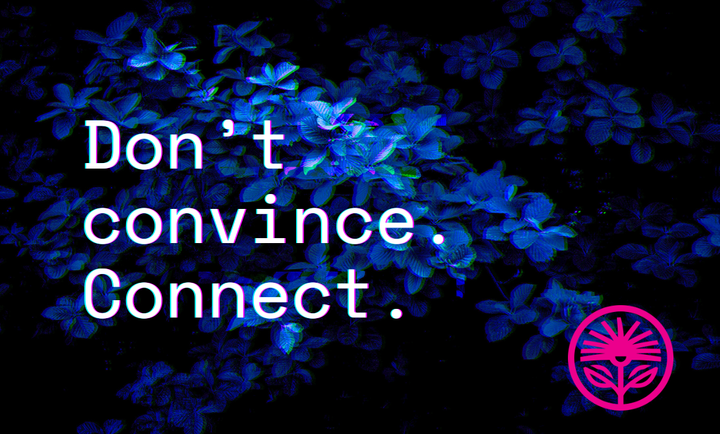Model: Efficient Persistence
The only thing you need, the one thing you can’t do without.

In everything I’ve observed, experimented with, and practiced over the past 20 years, the one thing you can depend on—and the one thing you can’t do without—is managing your ability to persist.
And in nearly every case I’ve ever studied or witnessed, when a business fails or an entrepreneur struggles, it’s because they fought or are fighting this principle, and its core components.
So, if you want to achieve something great with your marketing, here’s what I’ve learned managing your ability to persist comes down to:
1) Being action-oriented
If you want to persist in your marketing efforts long enough for them to pay you back and then some, you need to be action-oriented.
Too many marketers are decision-oriented: As in, they spend all their time not making decisions.
Actions demand choices, as you can only do so many things at once. We have an endless capacity to plan, but a limited capacity to act.
Lean into that, and make sure whatever it is you’re going to do, it involves actually doing something, not just planning to do something, deciding on something, or researching something.
Those things precede action, but they are not action in themselves.
Before working with us, one of our clients had invested tens of thousands of dollars into various marketing activities, to no obvious result. Not because her business wasn’t doing anything, but because they were doing a bit of everything—never truly deciding.
A year after our first project together—during which we cut their number of services in half, selecting for their very best clients—the entrepreneur-owner credits the clarity we gave her with fully achieving her dreams for her business.
We credit the fact that she was able to finally make marketing decisions that were best for her, instead of a mix of what everyone else is doing.
Feeling busy feels like action, but real action feels like clarity.
Because, it turns out, if you’re doing a bit of everything, you’re doing a whole lot of nothing.
Read the Daily Lab all about being action-oriented.
2) Making it work no matter what
Now, the actions you choose to take must work even if nobody ever sees them. Seriously.
Because it’s got to be valuable to you before it can ever be valuable to anyone else.
Think about it this way: If it’s worthless to you, why would you sell it? And wouldn’t it be so much easier to sell something whose value you’ve experienced yourself?
If your marketing only helps you if somebody else sees it, in my experience, it probably won’t help at all.
I can give no clearer or simpler example than this newsletter. Thankfully, you’re actually reading it. But I was writing it long before I was publishing it, and I was publishing it long before you were reading it.
I’ve published over 120,000 words in this newsletter over the past few years. That’s two standard business books’ worth—and every word was worth writing whether anyone ever read it or not.
Our consulting practice has fundamentally changed—and continues to change—based on the writing of this newsletter, not just the reading. Because we’ve implemented, experimented, and refined the frameworks and models we develop here.
We don’t just practice this stuff, we live it.
Read the Daily Lab about making it work no matter what.
3) Being able to do it forever
My favorite economic principle is called Stein’s Law: “If something cannot go on forever, it will stop.”
If you set out to perform marketing activities that you couldn’t keep doing forever, you’re going to stop at some point. And probably sooner than you think.
Past clients of ours, another wife-and-husband team, were overwhelmed with marketing decisions. Their product was incredible, and its popularity was growing—but their energy was waning. How could they keep marketing their product—an FMCG, notoriously the hardest products to market profitably—without burning their entire family out?
By doing marketing that was an output of something they were already doing.
Their own experiments at home with their product, their own use cases, their own every day experiences (and those of their customers) became the core of their marketing.
Of course they had to do new things, but they only started what they could do forever, because they already loved doing it.
It was worth doing before it was marketing, and once it was marketing, it was worth so much more.
Read the Daily Lab about sticking with it forever.
4) Passing up an obvious, faster alternative
If you’re doing something the fastest possible way, you’re not being patient. You’re not making any choices—you’re not passing on weaker alternatives, because you’ve already picked the weakest option.
The point of patience is in the pace, and in the trade.
We’re consulting with a team of entrepreneurs now who are working toward a steady, passive income stream, based on their original IP (like a book or a course). And the path we’re currently exploring with them is, inarguably, the slow way.
A faster way would be to carve out a month of time from their consulting work (or add the equivalent of a full-time job to their existing schedule), develop course material or write a book, and pay a fortune to package and promote it. Eventually, if enough people buy, subscribe, or sign up, they’ll break even and start making profit on the IP.
That’s what we often see: people trying to buy their way into steady income. But if that worked, why would anyone ever struggle?
Instead, we’re exploring developing IP as a natural consequence of their consulting—turning what they learn working with clients into content they can publish, refine, focus, and get feedback on.
It will influence their consulting along the way, as they develop deeper and clearer language to describe their expertise and perspective, at the same time as they’re building a sellable stable of IP.
The content they’re building for passive income will get them consulting clients in the meantime—ones perfectly selected to value their particular expertise.
And because their IP will be based on what they’re best at, love most, and have provable expertise in—it’ll be more valuable and easier to promote as a result.
Meaning, it’ll end up being the faster way, anyway.
Read the Daily Lab about choosing the slower path.
5) By making obvious tradeoffs
Marketing only works if it requires a tradeoff.
I mean, if all you had to do was spend money and act fast, why would any business ever fail?
It’s not because people aren’t trying that. It’s because that doesn’t work.
Businesses don’t “grow into profit” any more often than people buy their way out of debt. I mean, does it happen? Sure. Should you try it...?
I don’t love quoting robber barons, for the obvious reasons, but occasionally they come up with a good line. Like this one from Rockefeller:
“Oftentimes the most difficult competition comes, not from the strong, the intelligent, the conservative competitor, but from the [person] who is holding on by the eyelids and is ignorant of [their] costs, and anyway [they’ve] got to keep running or bust!”
And oftentimes, the most fervent business advice you get is from people who’ve got to keep running or bust—because they’ve made it all about money and speed.
But if you’ve got to keep running just to keep moving at all, that’s a lesson to choose a different path, not a faster pace.
This month, all we’re talking about is that path: Managing your ability to persist.
Because that’s what it all comes down to.



